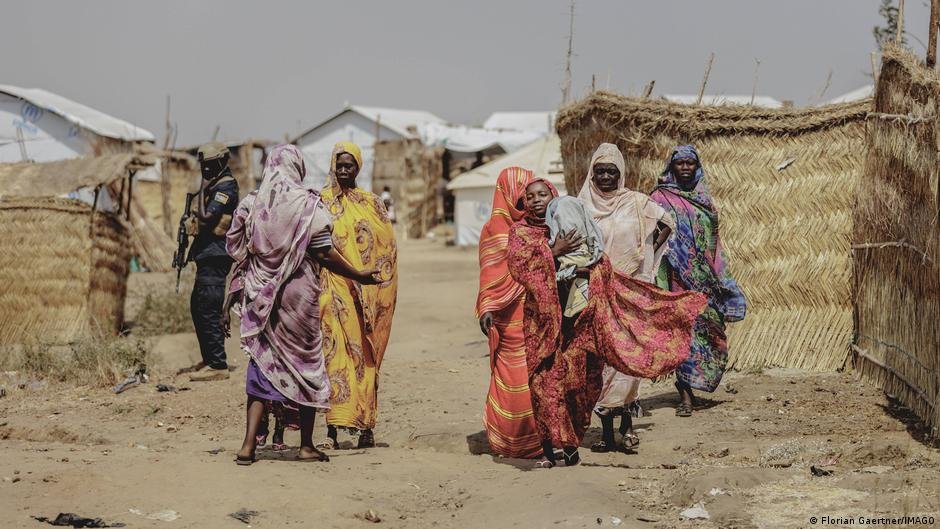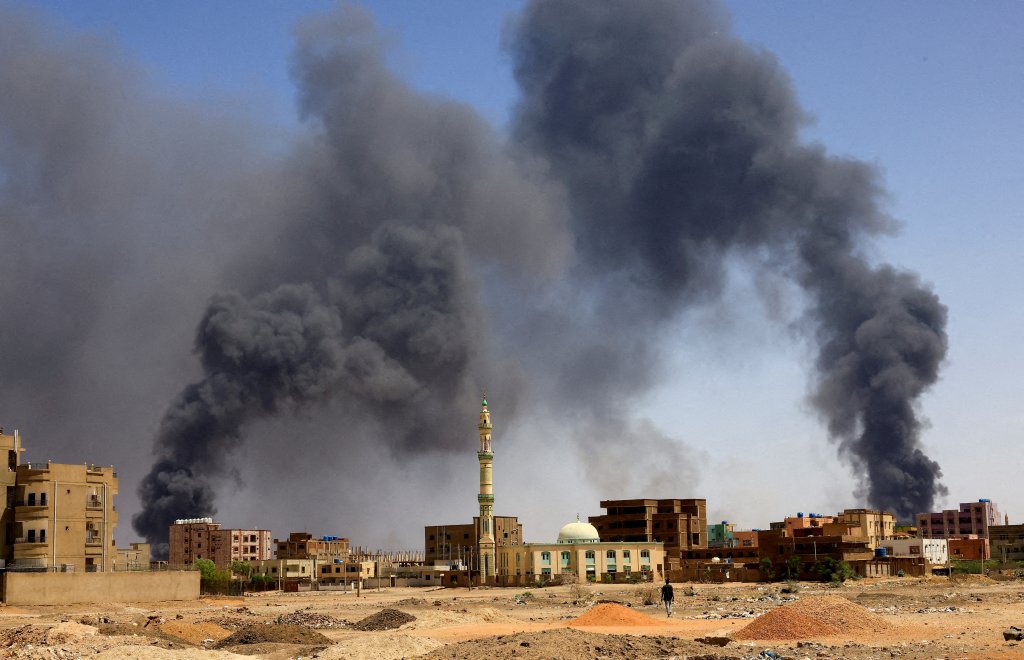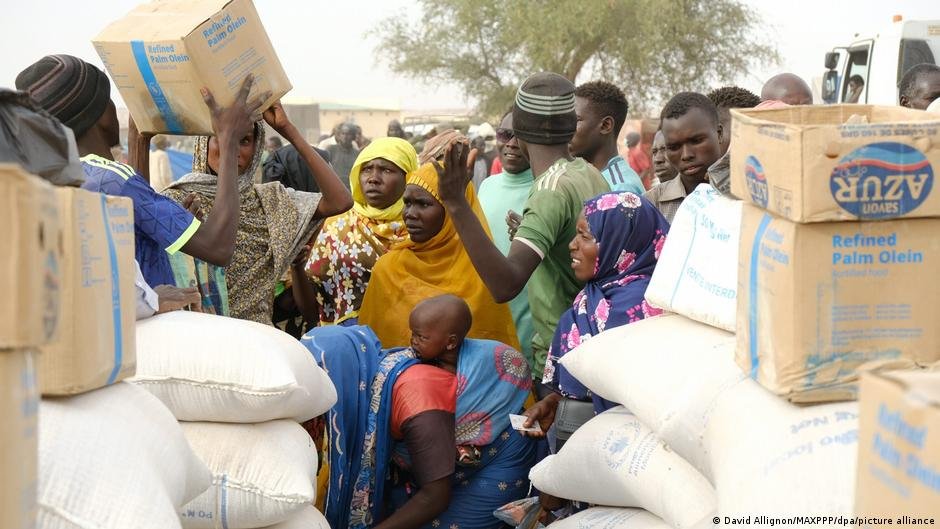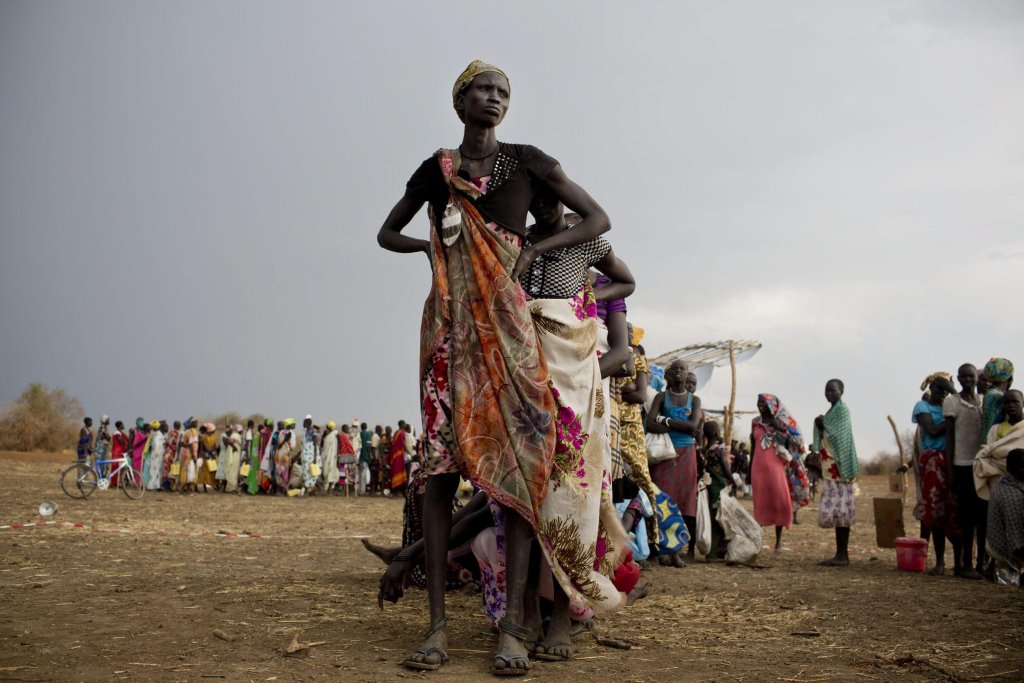Sudan is facing the world's largest displacement crisis amid ongoing conflict, as rights groups accuse both sides of using famine as a weapon of war. Peace talks held in Switzerland meanwhile have failed to materialize any major shift.
Peace talks to address the civil war in Sudan have yielded little results in recent days, as the humanitarian crisis unfolding in the country continues to be the world's single largest displacement crisis, with nearly 11 million people displaced internally and 2.3 million fleeing across borders.
The conflict, which began in April 2023, is essentially a power struggle between a paramilitary group known as the Rapid Support Forces (RSF) and the government-backed Sudanese Armed Forces (SAF) over control of the state and its resources.
The conflict has led to thousands of deaths, widespread war atrocities, and severe food insecurity.
Also read: Sudan: Repercussions of world's 'worst displacement crisis' on Europe
Starvation as a weapon of war
Heavy rains and floods in recent weeks meanwhile have compounded the situation, displacing tens of thousands more and hindering access to humanitarian aid. Last month alone, intense fighting in the Darfur city of al-Fasher and in Sennar province led to the displacement over 700,000 people, according to the International Organization for Migration (IOM).
Once known as a global breadbasket, Sudan is now also on the brink of starvation, with both the RSF and the SAF accused of using hunger as a weapon of war.
Speaking to The Guardian, US Special Envoy to Sudan Tom Perriello accused both sides of "cowardice" in relation to their continued use of such tactics.
"It is shocking to see the lack of courage and honour, particularly where there are people who don't seem to want to fight militarily, but would rather use starving women and children as their arsenal," he told the British daily.

Last month, global experts confirmed that starvation at a massive camp for displaced people in Darfur has grown into a full-blown famine. Experts from the Famine Review Committee have also warned that over 25 million people -- more than half of Sudan's population -- will face acute hunger as a result of the conflict.
This is partly why many Sudanese refugees have fled to neighboring countries. But these nations also face their own challenges and have limited capacity and resources to host refugees, with international support falling desperately short of what is needed.
Also read: Egypt: Sudanese fear deportation following new regularization law
'A catastrophic, cataclysmic breaking point'
Othman Belbeisi, the IOM's regional director, said that these conditions will worsen if the war and restrictions on humanitarian access continue.
"Without an immediate, massive and coordinated global response, we risk witnessing tens of thousands of preventable deaths in the coming months," Belbeisi warned, referring to the current state as a "a catastrophic, cataclysmic breaking point."
IOM Sudan mission chief Mohamed Refaat said on Tuesday that 73,000 people across 11 of Sudan's 18 states were now also affected by the seasonal floods.
"Families are losing what little they have left, and critical infrastructure has been washed away, disrupting vital humanitarian aid," he explained
The US is nevertheless holding ceasefire talks in Geneva despite a lack of commitment to the process by both parties.

Also read: UNHCR: 120 million people displaced globally
International involvement
Much hope is pinned on the peace talks, which are being brokered by the US and Saudi Arabia. Other bodies like the UN and the African Union are attending as observers.
The president of the International Committee of the Red Cross, Mirjana Spoljaric, nevertheless expressed hoped the talks would result in agreements that would at least unlock humanitarian assistance and access to the increasing number of fragile communities in Sudan.
Spoljaric called for "very concrete humanitarian steps that will help build the trust, and will help remove some of the immediate obstacles for a ceasefire agreement," as widespread displacement continues to grow.

Also read: Sudanese refugees in Germany decry forgotten war
European policies exacerbating the Sudan crisis
Meanwhile, Human Rights Watch (HRW) has accused European countries of complicity in the unfolding crisis, alleging the authorities across the bloc prioritize migration control deals with North African governments over necessary humanitarian action for Sudanese refugees.
Policies such as the UK's Illegal Migration Act have exacerbated the situation by limiting access to asylum and outsourcing migration control to regions with poor human rights records.
The UNHCR reports a nearly sixfold increase in Sudanese refugees reaching Europe nevertheless, with 6,000 arriving in Italy via Tunisia and Libya in 2023. Despite this rise, the Sudanese remain only a small percentage of all arrivals.
In Tunisia, Sudanese registrations meanwhile surged from 513 in January last year to 5,866 by December, while Libya saw a 10,000-person increase from March to December 2023.

Many Sudanese nationals are also fleeing to neighboring Egypt but there, too, they appear to face further difficulties linked to EU policy.
According to Amnesty International, Egyptian authorities, using EU-funded security forces, have forcibly deported around 800 Sudanese refugees between January and March 2024, denying them the opportunity to seek asylum in the country.
A campaign of mass arrests in the Egyptian cities of Cairo, Giza, and Aswan has aided in creating an atmosphere of widespread fear within the refugee community.
In addition, there are currently over a million Sudanese refugees also in Chad, where resources are scarce due to the country's own instability. Here, many refugees face extreme hardship, including hunger, illness, and lack of shelter.
Also read: Tens of thousands of migrant testimonies reveal dangers of land routes in Africa
Massive need for humanitarian aid
There is also a major shortfall in humanitarian for Sudan due to low funds and lack of access. The IOM has only received 21% of the necessary funds necessary to provide aid to the Sudanese population, highlighting a severe shortfall in international support.
Filippo Grandi, the United Nations High Commissioner for Refugees (UNHCR), warned that the crisis in Sudan will only worsen in the coming months if fighting continues and access to humanitarian aid remains blocked.
In April, Grandi told Reuters "I'm making the case for more support to be given to those that are displaced inside Sudan or immediately in the neighbouring countries, because otherwise they will become refugees along those routes."
Also read: 25 million people in Sudan urgently need humanitarian aid
With AFP, AP, Reuters
